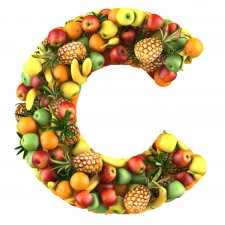Ever since the days of Linus Pauling, a chemist who claimed high doses of Vitamin C could cure a number of illnesses including cancer researchers have come up short in finding the same supporting evidence on the "miracle" vitamin.
That said, according to a new study, high-dose Vitamin C selectively killed cells that carry a common cancer mutation in mice, and slowed the growth of tumors with the mutation.
Seems promising, but it's far from reality for human health, or at least the near future.
So rather than simply being duped by misleading headlines that have surfaced after the study's results like "Vitamin C Act As Cancer Prevention, Study Proves" or "Vitamin C may be an anti-cancer weapon after all" let's look at the findings alone.
The cancer cells, carrying either KRAS or BRAF mutations, are found in more than half of human colorectal cancers, which are desperately in need of more effective therapies. In the study, published in Science, researchers observed that these mutations were killed off in mice when exposed to high levels of vitamin C.
How? Vitamin C can compete with glucose for entry into these cancer cells, which over express the proteins that transport the glucose into the cell. This diminishes the amount of available glucose for the cancer to utilize. Given that cancer cells with KRAS and BRAF mutations are heavily dependent on glucose metabolism for survival and reproduction, inhibiting the process with a mega-dose of Vitamin C curbs tumor growth.
Researchers then gave high-dose injections equivalent to eating 300 oranges per day to mice that were engineered to develop colon tumors. The tumors that did develop were smaller compared with the control mice who did not receive vitamin treatment.
If the findings translate to human health it could change the current treatment options for a range of cancers, especially colorectal cancer.
Yet, this cannot be expected. Not even close.
Mouse models of human cancer are among the worst animal models in use. Cancer would have been cured 1,000 times if the results in immune-compromised mice translated into humans. But, they don't. Furthermore, vitamin C's poor track record cannot be ignored.
Though it's been touted as a "miracle" treatment for the common cold, and the prevention and cure for cancer, it has hardly lived up to its name. Cancer studies that have attempted to replicate significant results in the past have failed to show any benefits. A double-blind study from the New England Journal of Medicine showed high-dose vitamin C therapy was not effective against advanced malignant colorectal cancer.
Much more research is needed before we can consider the vitamin a key element in cancer therapy or prevention, yet many scientists and doctors already believe that too much has been done already, with nothing to show for it.




